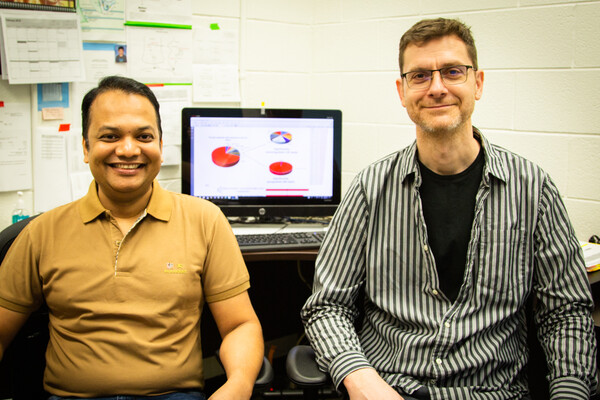Breadcrumbs
- Home
- Future Grad Students
- MSc / PhD Admissions
- Finding a Supervisor
Finding a Supervisor

MSc and PhD students in Physiology must secure a supervisor before they can begin their course of study.
We encourage prospective students to reach out to potential supervisors as early in the Admissions Process as possible.
Connecting with a supervisor in advance significantly strengthens your application and demonstrates your deep interest in a certain field of research.
We realize the process of finding a supervisor can be confusing or intimidating for some.
The steps below are intended to break down the process and empower you to connect with a supervisor and lab that match your interests and approach.
1. Getting Started
Determine your research interests:
- Research in Physiology is divided into four platforms.
- Read through the descriptions of each platform and see what stands out to you.
- Choose a couple of Primary Investigators (P.I.'s) from the platforms that interest you, look up their recent publications, and get a sense of their research.
Please note:
- Some faculty members publicly announce when they are seeking new students.
- Some faculty members prefer to review the skillsets of students who have reached out, and decide the needs of their lab based on that.
- If you'd like to work with a faculty member who hasn't specified that they're accepting new students, you may still contact them with a carefully tailored email.
What's Next?
When you've narrowed down a few P.I.'s you might wish to work with, move on to 2. Contacting Potential Supervisors.
2. Contacting Potential Supervisors
Write your emails carefully:
The emails you write to potential supervisors are:
- A job application.
- Your first impression on the faculty member.
Remember to:
- Tailor the email to the specific P.I. and their research.
- Explain why you are interested in their field and how you see yourself fitting into their lab.
- State your longterm goals. If you plan to go to a professional school in the future, it is advisable to note this.
- Attach a CV or resume and a transcript to your email.
- Proofread for spelling and grammar.
Following Up:
- If you haven't heard back from a potential supervisor, you may write a brief follow-up after a few weeks.
- Our faculty members have many competing demands, and are looking for students who take initiative and show persistence in a professional manner.
- If a P.I. has indicated that they will not be accepting you as their student at this time, that decision should be respected and not pursued further.
What's Next?
Once you've received a favourable response from a potential supervisor, move on to 3. The Interview - Ensuring a Good Fit.
3. The Interview - Ensuring a Good Fit
Schedule an opportunity to talk:
- An in-person interview or telephone call will help determine if the lab is a good fit on both sides.
- Use this opportunity to ensure you understand the lab's research and what your role would be.
- Ask questions about the organization of the lab to ensure that it fits with your working and learning styles.
- Ask the professor to share contact information for some of their lab members and reach out to them as well.
Contact lab members:
- Deciding on a lab is a big decision; make sure you have all the information.
- Reach out to lab members by email and ask relevant questions such as:
- What is the P.I.'s leadership style?
- Do you enjoy working with the P.I.? Why or why not?
- Is the atmosphere collaborative or more independent?
- If I am a particular type of learner, do you believe I will be supported in this lab?
- What is the publication record for this P.I.'s graduate students?
What's Next?
Once both you and the P.I. have established a good fit, move on to 4. Finalize the Arrangement.
4. Finalize the Arrangement
Finalization happens in this order:
- Once you secure a Supervisor, you must notify the Graduate Office.
- Once the department approves the supervisory arrangement and you have set up your U of T email address, you will be invited to complete the GEMS Student - Supervisor Agreement Form online.
6. Troubleshooting Difficulties
Your Committee will help you with issues:
- Early in the program you will be asked to assemble a committee, consisting of at least two other Professors, who will advise you in your studies.
- These professors will serve as your contacts should problems arise in the lap or your program.
- Ensure that your Committee members are able to meet two to three times a year.
- Use these meetings as a forum to discuss any issues, and ensure that problems don't fester.
- The Graduate Coordinator and Graduate Studies Administrative Assistant can also offer advice should you encounter difficulties.
